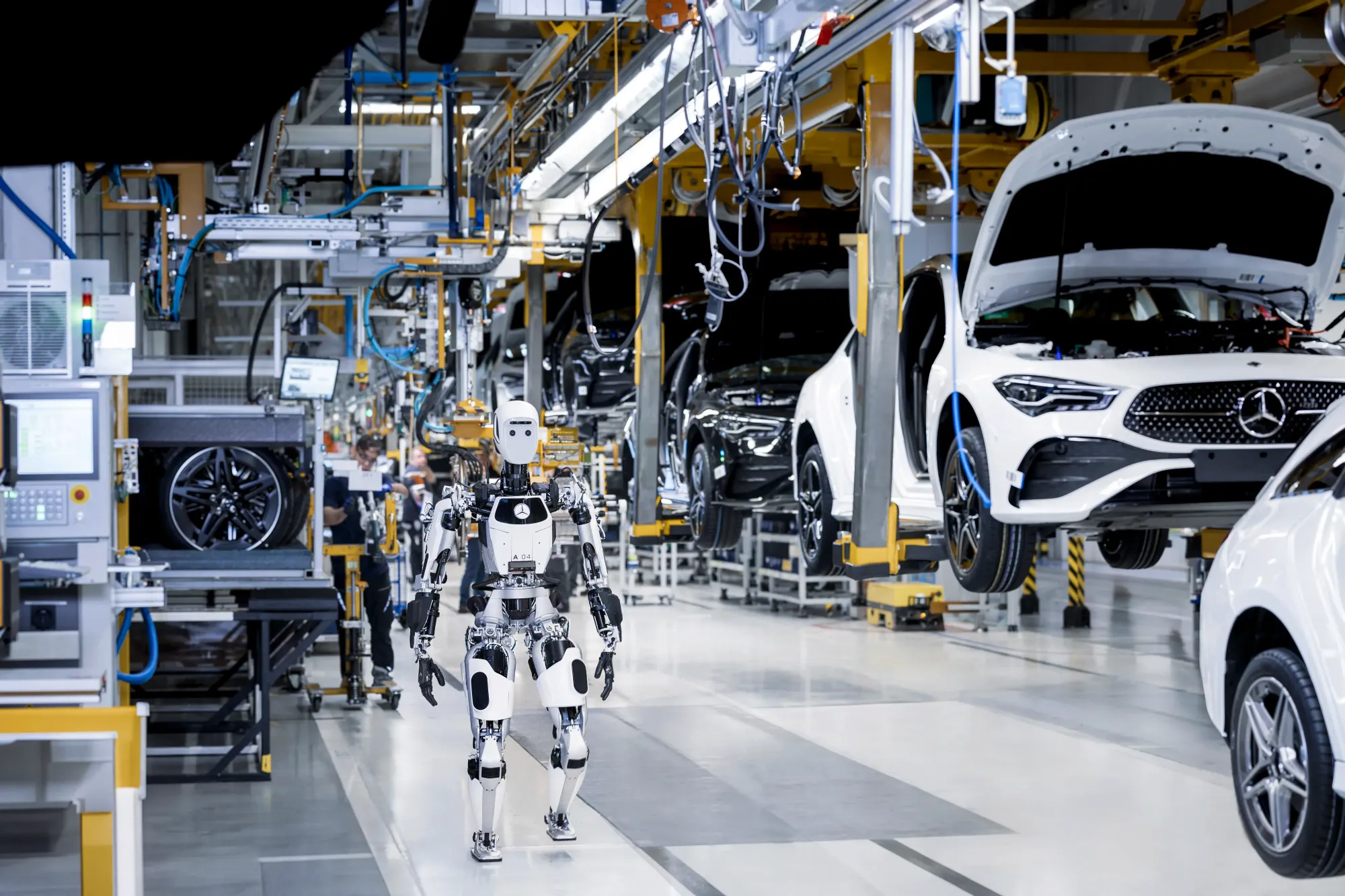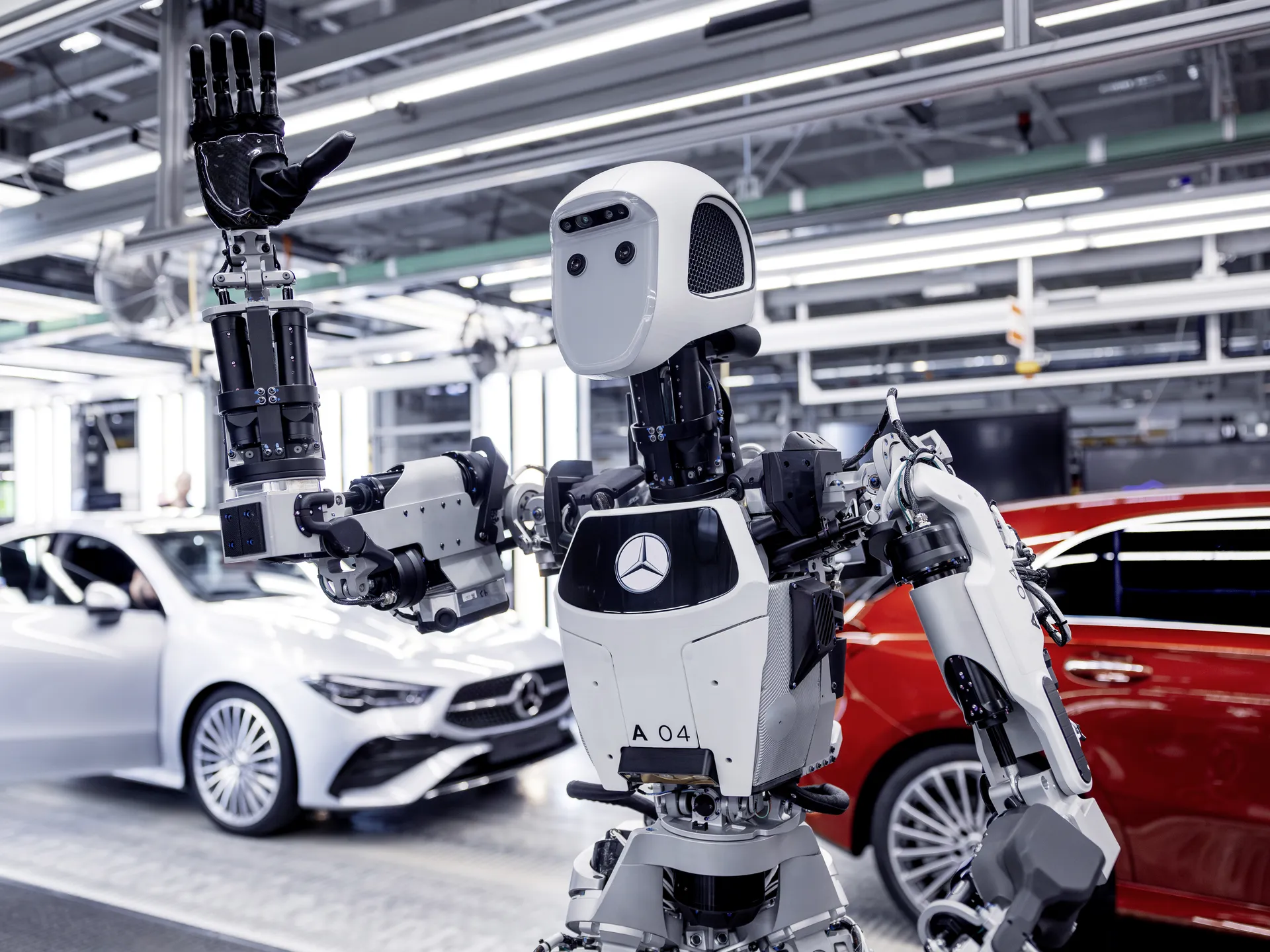Mercedes-Benz has recently forged a partnership with Apptronik to integrate humanoid robots into its manufacturing processes, aiming to streamline operations and provide support to human workers along vehicle assembly lines.
These humanoid robots, dubbed Apollo, are set to play diverse roles within the German automaker’s facilities. From facilitating logistics-related tasks like delivering parts and assembly kits to inspecting components, the introduction of Apollo is envisioned to enhance efficiency and save time.
The decision to opt for humanoid robots stems from practical considerations. Retrofitting existing factories to accommodate new robotic systems can be prohibitively expensive.
By leveraging humanoid designs that closely resemble human workers in size and weight, such as the five-foot-eight-inch tall Apollo weighing around 160 pounds, Mercedes-Benz can integrate automation seamlessly.
Crucially, the deployment of these robots isn’t about displacing human employees. Rather, Apollo will primarily tackle physically demanding, repetitive, and monotonous tasks that are challenging to staff with human workers.
Moreover, Apollo’s design emphasizes a friendly and approachable demeanor to foster a harmonious working environment alongside human colleagues.
With a focus on safety, the robots are equipped with force control architecture to ensure secure operation around humans, functioning akin to collaborative robots rather than traditional industrial ones. This feature enables them to contribute efficiently to the production of luxury vehicles like the C-Class.

Apollo’s adaptability extends to compatibility with third-party software and functions, akin to the versatile applications found on an Apple iPhone, as highlighted by its creators.
According to Jeff Cardenas, CEO and co-founder of Apptronik, Mercedes-Benz’s adoption of robotics, particularly Apollo, sets a precedent for automating labor-intensive manual tasks, a trend likely to be emulated by other organizations in the future.
Mercedes-Benz joins the ranks of automakers embracing humanoid robotics, following the lead of competitors like BMW, which introduced robots in its Spartanburg, South Carolina facility, and Tesla with its Optimus Robot project, spearheaded by CEO Elon Musk.
Furthermore, Hyundai’s exploration into robotics extends to innovative solutions such as robot dogs, showcasing the automotive industry’s broader engagement with automation across various operational domains, from manufacturing to specialized tasks like aiding emergency services.
Also read: Waymo Launches Free Driverless Robotaxi Rides in Los Angeles, Attracting 50,000 Potential Riders

